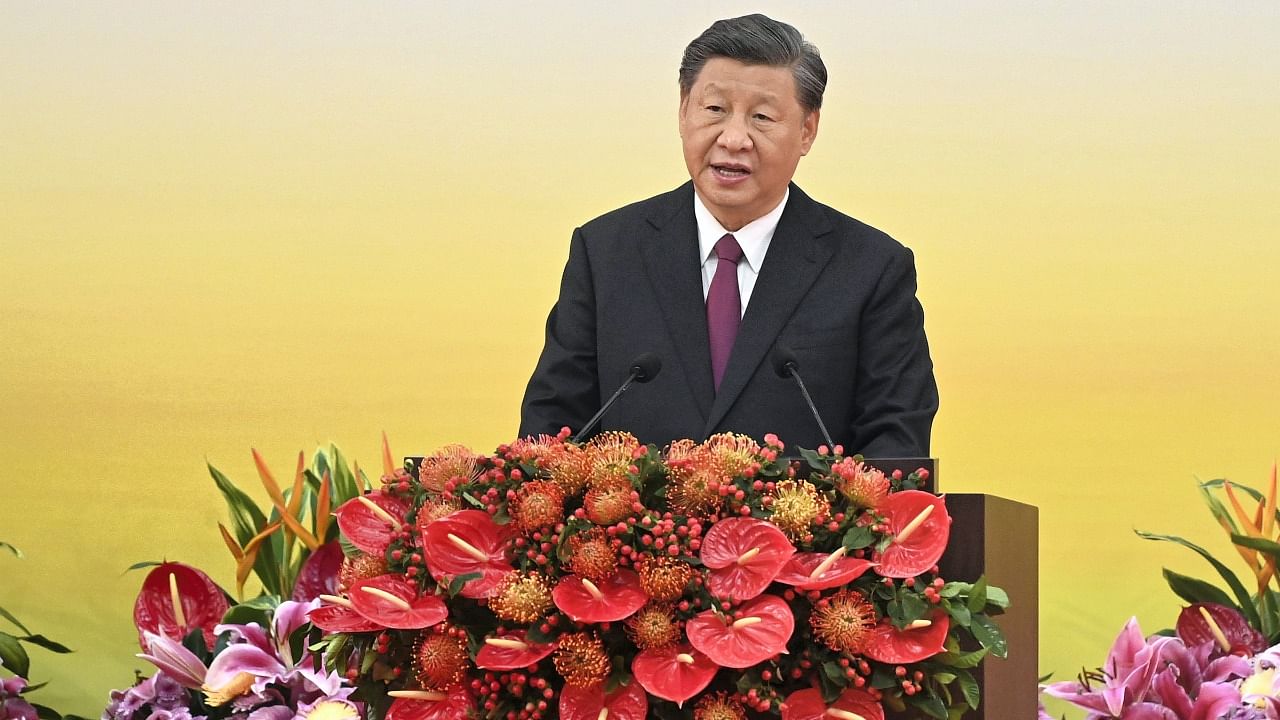
The economic and political crisis in Sri Lanka has brought the issue of mounting national debt, and its political effects in the Indo-Pacific region into a sharp focus. The situation in Sri Lanka is so dire that on July 9, irate Lankans stormed the presidential palace in Colombo, and President Gotabaya Rajapaksa had to flee the country. As the new government in Colombo, led by Ranil Wickremesinghe, takes shape, other Indo-Pacific countries are watching warily. Sri Lanka has now emerged as a case study for the entire region.
Much smaller as well as emerging economies of the Indo-Pacific have been under severe strain due to the Covid-19 pandemic, supply chain bottlenecks, and the knock-on effects of the Russia-Ukraine War. In fact, global economic growth was already slowing down even before the pandemic hit. The Russian assault on Ukraine and the evolving geopolitics have made it difficult to revive growth. The war has resulted in high energy prices, adversely affected global food security, and the danger of very high inflation looms.
The high level of inflation is a politically sensitive issue, and the Biden administration in the United States (US) is likely to suffer in the mid-term elections later this year as anti-inflationary steps could squeeze economic growth. Underlining the necessity of taming inflation, IMF Managing Director Kristalina Georgieva has argued that "countries must do everything in their power to bring inflation down. Failure to do so could risk the recovery and further damage living standards for vulnerable people."
In the Indo-Pacific region, the issue of sustainability of financing infrastructure projects and the concerns regarding the debt trap, especially in the context of China's Belt and Road Initiative, have been a part of the discourse. Since the handover of the Hambantota port to China in 2017, Sri Lanka has been touted as a poster boy for the China-induced debt trap. Highlighting the issue of debt, IMF MD recently warned that "countries with high debt levels and limited policy space will face additional strains. Look no further than Sri Lanka as a warning sign."
Apart from Sri Lanka, other Indo-Pacific countries like Pakistan and Laos are staring at an economic crisis. The Economist has identified 53 economies in danger of facing a debt crisis. The role of China as a creditor to the developing world is critical here. The Economist writes that "more than a third of the world's most debt-distressed countries also number among those most indebted to Chinese lenders."
Pakistan's general government debt stands at a whopping 74 per cent. Pakistan has been in talks with the IMF for a bailout package and has ended fuel subsidies. Meanwhile, the country has been in such dire straits that a federal minister urged his fellow citizens to reduce the consumption of tea, a major import item. There is a China dimension to the economic crisis in Pakistan as well. China has been a major strategic and economic partner and is building the China-Pakistan Economic Corridor (CPEC) through Pakistan-occupied Kashmir. According to reports, a quarter of Pakistan's debt is owed to China.
Laos has sought Chinese loans for infrastructure projects and is in danger of falling into a debt trap as well. The public debt of Laos, one of the poorest countries in Southeast Asia, amounted to almost 88 per cent of its GDP and half of it is owed to China. Laos is so deep in the Chinese orbit that last year, China undertook 813 projects worth more than $ 16 billion. On the other side of the Indian Ocean, Kenya, too, is overly reliant on Chinese financing for infrastructure projects. Its debt to China accounted for 10 per cent of its GDP, and the country has faced protests against the growing debt.
In South Asia, Bangladesh and the Maldives seemed to be on the verge of getting embroiled in an economic crisis. The inflation is at an eight-year high in Bangladesh, and the government has curbed non-essential imports and sought an IMF bailout package. The Maldivian public debt is more than 100 per cent of its GDP, and its debt to China has been a concern for India. Like Sri Lanka, the Maldives is a tourism-dependent economy, and the Covid-19-induced restrictions have affected the tourism sector the most. The troubles Sri Lanka and the Maldives face are warnings for other smaller countries, especially the smaller island states in the Indian Ocean and South Pacific, to be prudent about the loans and Chinese financing.
In this context, the role of the US and other Quad players assumes significance. At the Tokyo summit held in May 2022, the Quad countries announced their "shared commitment to deepen cooperation on infrastructure, which is critical to driving productivity and prosperity in the Indo-Pacific region." They also highlighted their concern and willingness to address debt issues "exacerbated by the pandemic in many countries." The Quad announced more than US$ 50 billion of infrastructure assistance and investment in the Indo-Pacific over the next five years. Another notable outcome was to promote "debt sustainability and transparency" through the Quad Debt Management Resource Portal.
As the battle lines are being drawn for influence in the Indo-Pacific, the issue of debt sustainability and the geopolitics of infrastructure financing will continue to feature prominently in the strategic discourse.
(Sankalp Gurjar is a strategic analyst based in Delhi)
Disclaimer: The views expressed above are the author's own. They do not necessarily reflect the views of DH.